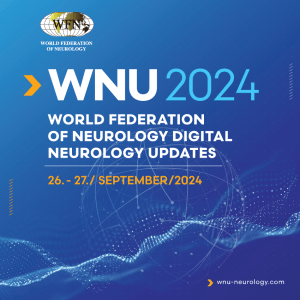
An event focusing on Neuromuscular disease was held on the 23rd February 2018 as part of the National Neurosciences Advisory Group’s wider scheme of work. The purpose of the day was to facilitate the improvement of services for patients with Neuromuscular disease nationally, through the sharing of good practice and identification of areas where more work is needed. It was acknowledged that different models of care will work in different parts of the country but equity in the standard of care is the goal.
The National Neurosciences Advisory Group (NNAG) exists to seek alignment between programmes in NHS England, the Department of Health’s Arm’s Length Bodies, and system partners, such as charities relevant to people with neurological conditions, and to guide the strategic development of work to improve outcomes for people living with neurological conditions. One of the aims of NNAG is to bring together all the different professionals that need to work together to achieve improvement in neurology services including clinicians, patients, commissioners and academics.
This event was the first of several events that will be taking place throughout the year. In March we looked at Neurorehabilitation, a meeting to look at Parkinson’s, Dementia and Psychiatry is scheduled for July, followed by Epilepsy in September.
A number of presentations generated discussion around their potential for wider adoption or key issues that needed to be addressed.
The University College London Hospital (UCLH) Neuromuscular Complex Care Centre model, presented by Dr Ros Quinlivan, was highlighted as an area of good practice, this specially designed elective ward provides a one-stop-shop service for patients. This has been particularly valuable for a cohort who may fatigue easily and have trouble travelling to access services. The results have been holistic, streamlined, high quality care with improved communication between specialists and a 42% reduction in unplanned admissions for patients who have been assessed on the NMCCC more than once. It was agreed that work should be done to adapt this model for use in other regions, with initial discussions already taking place in Newcastle.
Lisa Joyce, Myasthenia Clinical Nurse Specialist (CNS) from University Hospital Southampton, presented on the work that she has been doing and the benefits delivered by her role. Lisa demonstrated that CNS posts deliver high quality service for patients, are highly valued by clinicians, and also delivered cost savings through the reduction of both Consultant appointments and unplanned hospital admissions. It was agreed that a business case should be developed to support the expansion of these roles nationally.
A key area of development presented by Dr Chiara Marini Bettolo was around emergent drugs for patients with Duchenne Muscular Dystrophy and Spinal Muscular Atrophy. She discussed increasing numbers of trials and novel treatments being developed for these conditions which is a positive step for patients with these conditions. However, she also highlighted a number of issues around equity of access to treatment, particularly through transition from paediatric to adult services, and that the appraisal process for these new treatments needs to be considered, particularly around longer-term resourcing implications.
Dr Yusuf Rajabally demonstrated how the process for IVIg prescribing is in need of improvement. He presented several case studies demonstrating issues of differences in access, discrepancies in approval, varying functions of approval panels, variable post usage queries and differences in long term monitoring. The result of this is patients receiving either inappropriate treatment, or unnecessary high doses of an expensive treatment. As a result of discussions, a new group has been established bringing together experts from the clinical reference groups to review the IVIg process.
Continuing the theme of access to treatment Dr David Hilton presented on access to Rituximab for Myasthenia Gravis. Rituximab is used for patients who do not respond well to conventional treatments, approximately 10%. Although results are positive there is not yet a formal evidence base for its effectiveness, and as such it is not routinely commissioned for Myasthenia Gravis. Individual Funding Requests (IFR) must be submitted to gain approval. A working group has been established by NHS England to review this process as well as collation of cases and outcome measures to prove efficacy.
The final theme that spanned a couple of presentations was ensuring appropriate communication with patients and that the relevant information is available to them. This was discussed particularly in relation to nutritional support but also care planning for patients with Neuromuscular conditions. The need for definition around what should be included in a care plan and emergency care plan and how they should be used was highlighted. It was agreed that the implications of care planning for Neuromuscular patients should be incorporated within the wider piece of work that the NNAG is undertaking in relation to care planning for all Neurology patients.
The overall feedback from delegates on the day was positive with good participation in discussions and some key areas identified to take forward.
A full write up will shortly be published on the Neurological Alliance website. If you would like more information please contact Lucy Hawkins, Senior Consultant, The Strategy Unit, Lucy.hawkins4@nhs.net.

